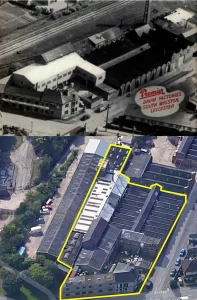Does the existence of a company history make your decision...
Read MoreWhen is a product “homemade”?
When is a product "homemade"?

In the ongoing saga that is Brexit the latest stumbling block coming out of the ongoing deal-making is car manufacture & zero tariffs when exporting to the EU, when is it UK made?
One sticking point is the car has to be UK manufactured and what constitutes ‘Made in the uk’. The EU has the standpoint, ‘for UK manufacturers to prove that UK-exported goods are actually British-made, with a specified threshold of British parts, expected to be around a half.’ This apparently includes the engine and other critical components.
BBC Article: Brexit: Blow to car industry in search for EU deal
Should this thought be carried over to other products too? A prefab house has the individual panels made in the country of origin? Clothing has GB woven material? British glasses have the lens made onshore?
Isn’t a printed circuit board then the heart of an electronic device? Just as an engine is to a car, a PCB would need to be UK manufactured for the finished product to be approved as made onshore?
What other possible free trade tariffs could the EU put on your products exporting to the European Union after we leave that might increase your revenue if they fit the ‘British-made’ requirements?
So when a product has a “Made in the UK” stamp, is that true? Or is “Assembled in the UK” a more accurate description? Contact us today so you can be sure your PCB is an onshore product.
Other PCB news blogs you might be interested in...
New IECQ-C BSI 13.0001 approval (IPC 6011, IPC 6012, IPC 6013)
You need a UK PCB manufacturer with up to date...
Read More

